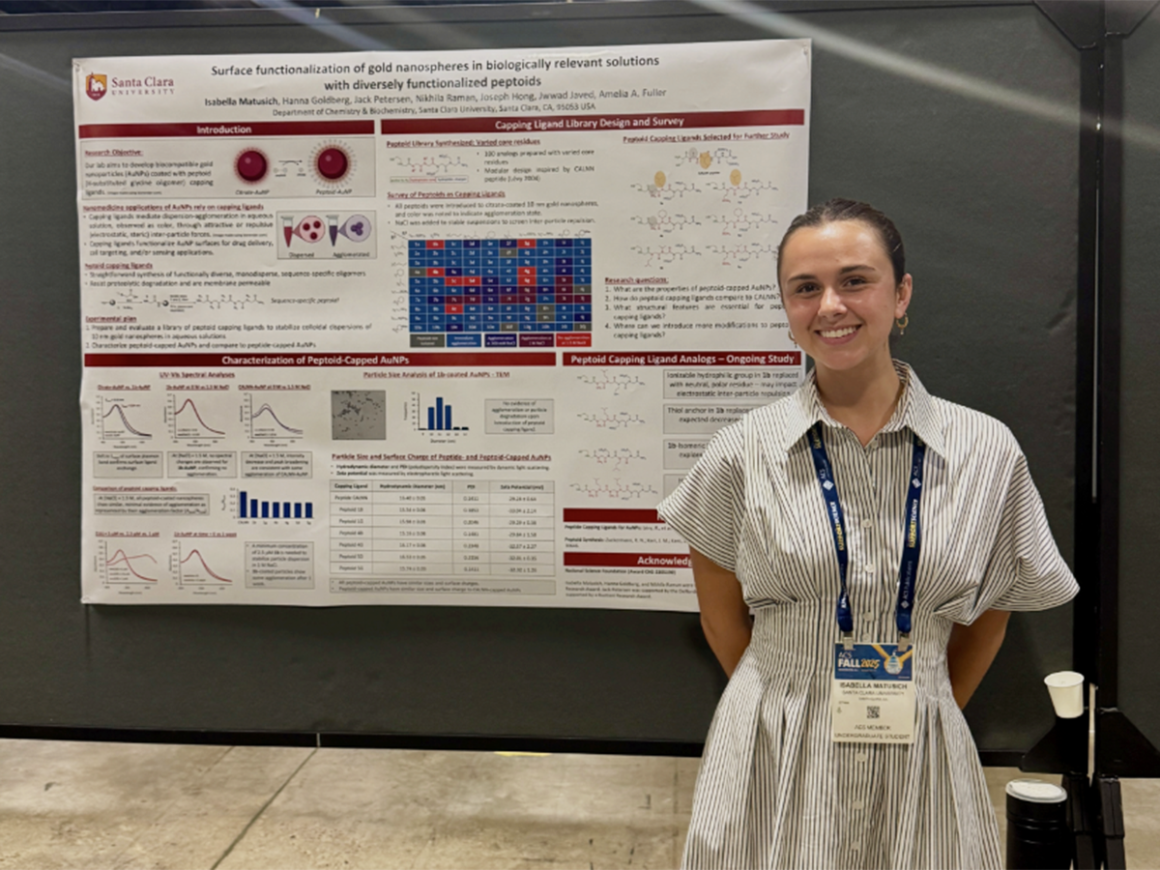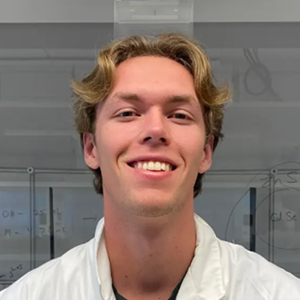The complex interactions of atoms, molecules, and ions determine our shapes and sizes, our environment, and even how we feel on a given day. Our faculty and students endeavor to understand the the world at the molecular level and apply this understanding to tackle problems in modern society.
Students in our department have close relationships with faculty who are committed, excellent educators. They’re engaged in on exciting modern topics, including bioanalytical chemistry, environmental chemistry, and medicinal chemistry. In their laboratory courses, students use advanced instrumentation to learn technical skills and problem-solving strategies that prepare them for careers after SCU. Outside of the classroom, our award-winning fosters camaraderie among majors and engages students in fun chemistry-themed activities on campus and in the community.
Our faculty work one-on-one with many students in the research laboratory, on such projects as developing organic materials for harvesting solar energy, manipulating chemical reactions with microfluidics, and understanding interactions between nanoparticles and biological molecules. Students routinely present their work at local and national conferences and are co-authors on publications in the chemical literature.
About Our Program
The Department of Chemistry and Biochemistry offers three baccalaureate degrees: the bachelor of science in chemistry, the bachelor of science in biochemistry, and the bachelor of arts in chemistry. The curriculum is accredited by the American Chemical Society (ACS), the professional organization for chemistry. The program prepares students for further work in chemistry or biochemistry, either in graduate school or as professional chemists. In addition, a chemistry or biochemistry degree is excellent preparation for careers in medicine, dentistry, law, engineering, business, and teaching. A minor in chemistry is also available. All bachelor of science degrees provide graduates with the background necessary to begin a career in chemistry or biochemistry at industrial and governmental laboratories, for admission to institutions offering graduate degrees in chemistry and biochemistry, and for admission to medical and dental schools as well as other professional programs in the health professions. The chemistry major provides equal training in all the disciplines in chemistry, and the biochemistry major combines training in chemistry with additional coursework in cell and molecular biology. The bachelor of science ACS-certified degrees meet all recommended standards for chemists and biochemists as mandated by the ACS. The bachelor of arts degree allows students the most freedom in choosing electives, and therefore is an excellent program for pre-medical or pre-teaching students. Students with a strong interest in the liberal arts or who wish to pursue subjects outside the standard science curriculum will benefit from this degree. The bachelor of arts degree can be effectively combined with a pre-law or business curriculum to provide excellent preparation for law or business careers in the technology sector.
Faculty & Staff
- Professor
- Academic Department Manager
408-554-4799 | Sobrato Campus for Discovery and Innovation
News & Events
With scientific curiosity and a drive to make a difference, Ritter Amsbaugh ’25 has left his mark at SCU as a researcher, leader, and teammate.
- More pages:
Coming Events
Life After SCU
Catch up with Sabine and her time in New York
Alumni News

"I will be a neurosurgery resident through the University of Washington Department of Neurosurgery which covers a total of 5 hospitals. Mainly Harborview Medical Center and UW Medical Center - Montlake, but also Seattle Children’s, the Puget Sound VA, and UW Medical Center - Northwest."
– Julian Clarke '14 (Biochemistry)




